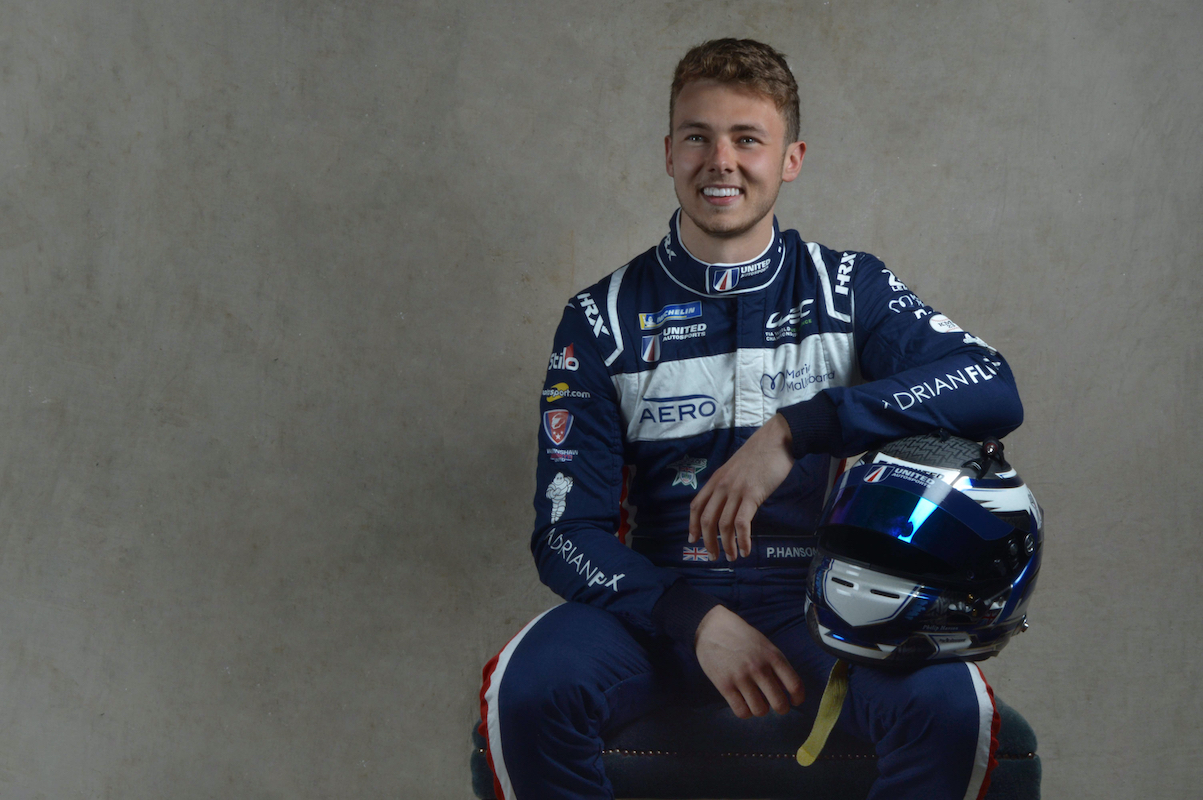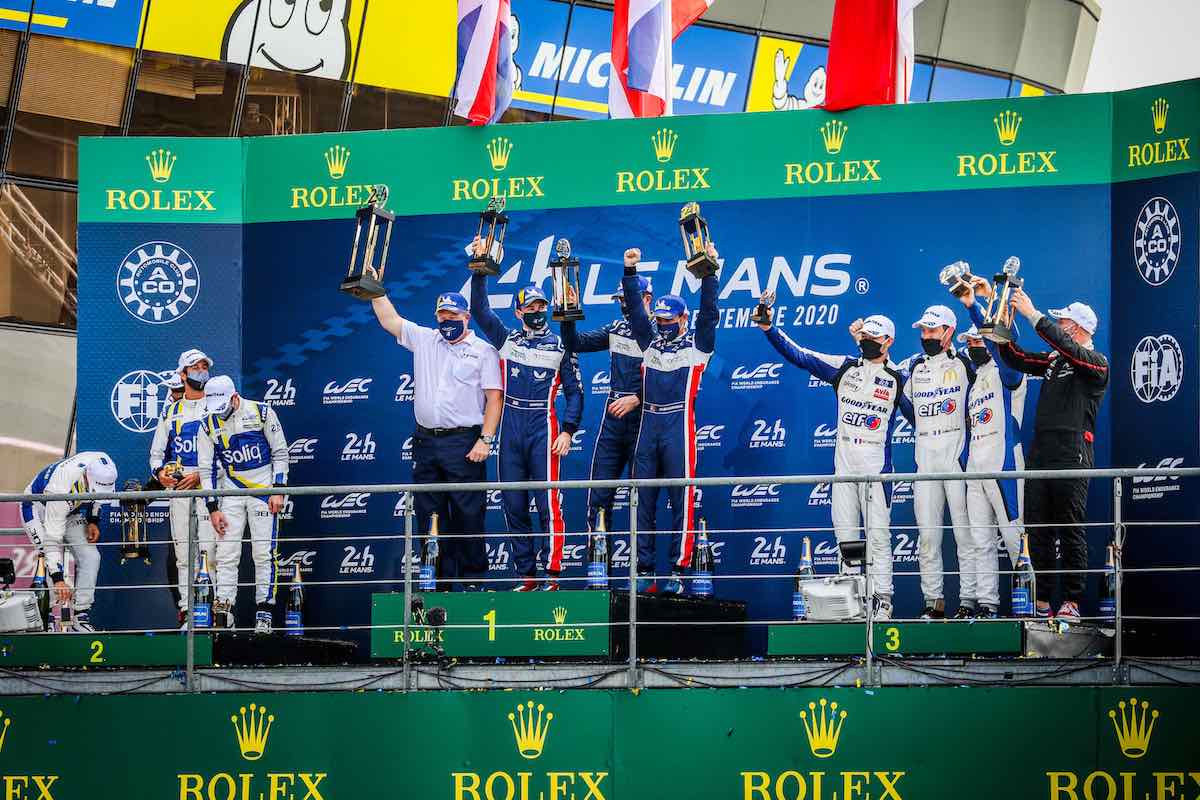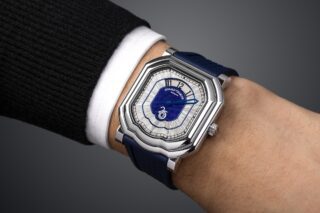This website uses cookies so that we can provide you with the best user experience possible. Cookie information is stored in your browser and performs functions such as recognising you when you return to our website and helping our team to understand which sections of the website you find most interesting and useful.
Built for speed: an interview with Le Mans record-breaker Phil Hanson
By Michelle Johnson | 10 May 2021 | Cars & Yachts
The 21-year-old racing driver is making his mark after a stunning year on the track

British driver Phil Hanson is just 21 years old, yet the endurance racing champion is already dominating the world of motorsport. In 2020, amid the pressures of the global Covid-19 pandemic, Hanson became the youngest Brit to win the historic Le Mans 24 Hours.
His subsequent victory in the United Autosports entered Oreca earned him the 2019-20 FIA World Endurance Championship LMP2 title – becoming the youngest-ever WEC champion in his first full season – with a race remaining. A mere three weeks later, Hanson won the 2020 European Le Mans Series title at Monza, Italy, securing his place as the first driver in history to scoop this hattrick.
It is a high point for the already many-titled young driver, whose skill is evidenced by his notable accolades. In previous seasons, he was the youngest driver to win Asian Le Mans Series LMP3 in 2017 and 2019.
Despite his tender age, Hanson’s dedication to his craft is evident – and impressive. From a punishing physical training regime to a self-awareness that underpins his ambitions, Hanson is a force to be reckoned with on and off the track. The Berkshire-born driver lists the Fuji Speedway, Japan, as his favourite racing circuit, while off the grid enjoys skiing and surfing – a need for speed also evident in his hobbies.
As Hanson heads into a new season, with higher expectations than ever before, we discuss what it takes to be a record breaker.

Phil, what are your hopes for the upcoming season?
I get asked that question a lot because, obviously, we set the bar quite high last year. We won both championships we entered, and we won Le Mans 24 Hour. I’d love to equal that result, but my main goal is to go out there and try to improve my personal performances. If that results in being able to accomplish what we did last year, that would be ideal, but I think it’s going to be very tough to match our performance in 2020.
How do you motivate yourself to improve after such a successful season?
My motivation has actually been very focused on improving my individual performances – from lap times, sectors, etc – rather than simply focusing on race results. When manufacturers come into the sport and are looking across the list of drivers, it’s that individual data that puts you at the top of the list. While winning races brings you to their attention, it’s also about your individual performance, so this year I want to better myself in a lot of different areas.

What distinguishes rally racing from other motorsports?
What makes endurance racing so different to Formula One is the fact that we have a lot more traffic. We’ll race at the same time as two or three other classes of cars, racing for the same duration on the same track. I’m in LMP2 [Le Mans Prototype 2], which means we’re overtaking slower cars constantly. Stint averages rely massively on that traffic management across all your lap times.
You have to be able to anticipate the road and become really efficient while you’re out there. That skill grows with experience, and I can definitely improve on where I was last year. My general pace is always getting incrementally better. Efficiency and consistency are the two things you can never have enough of.
You have broken multiple records with your title wins at WEC and Le Mans. What does that mean to you?
When I started, it was an ambition to win these titles, but I never imagined I’d doing it at such a young age. It’s great, because it brings the spotlight and attention towards you, which can be helpful when you’re competing in a sport dominated by people with typically five to 10 years more age and experience than you. As the years go on, I still find myself being the youngest year after year – although this year might be the last as my teammates are two years younger than me. As the next generation of drivers comes through the roster, it then becomes about setting the benchmark for them to look up to.
Winning races, breaking records, winning championships; those goals are always at the top of my list. It’s nice if I can pick up some pretty cool accolades along the way – like becoming the youngest Brit to win Le Mans in LMP2.

How important is teamwork?
There’s a lot of involvement with the team to make sure that we’re in a very position to tackle a championship. The difficulty is balancing different drivers and characters – you want the fastest three drivers, the most consistent three drivers, and the three drivers who are going to harmonise and work well together. Sometimes they’re not the same people. Luckily, United Autosport have a fantastic work environment and I’ve been able to prosper and share the car with fantastic people, from drivers and engineers to the behind-the-scenes crew.
What are the physical demands of racing?
Motorsport is incredibly different to other sports. Most of the fatigue comes from the strength of the G-forces while you’re manoeuvring at high speed, and it’s a full body workout. You need a huge amount of core stability and midline stability. There’s the weight of your helmet, which is multiplied by G-forces, but you need to protect your neck, which is unsupported; you have to hold your legs in position, because they need to be free for driver changes.
The other element that makes racing incredibly tough is the endurance that’s required. One of the races on our calendar is a 24-hour race, split between a three-driver team. You need to be in top shape and definitely have strong mental strength in order to avoid mistakes.

Has your training changed over time?
Definitely. I wasn’t the fittest driver when I started racing, but that’s something that’s changed massively in the last two and a half years. Moving up through the ranks, from GTs to LMP2, there are different physical and mental loads you need to be able to endure. I’ve been much tougher with my training in recent years, and I have a personal trainer who has altered my programme to target different weaknesses. I think I’m probably one of the fittest drivers on the grid now, which gives me a lot of confidence and mental strength heading into any weekend.
You mention mental strength; how do you achieve the right mindset ahead of a race? I think mental training is really personal to different people. Some use meditation to better their mental health and strength. Personally, I find the best way to train mentally is to get into a state of complete physical fatigue, where you’re only left with your mental strength to get you through a workout. It’s a pretty nasty way of training, and I certainly don’t do every day. I’m really fortunate to be able to continue training through lockdown, so I’m not squandering the opportunity – I’m trying to use this time to get ahead of everyone else!
Who are your influences?
I got into the sport quite late, at 14, so I didn’t really have an idol growing up. But I have massive respect for the generational greats, those people who come along and dominate the sport. It’s good in a way – I think it would be pretty heart- breaking to see your idol’s record get defeated, and records are there to be broken. Look at Lewis Hamilton in 2020, breaking Michael Schumacher’s win record in Formula One.
What are your goals for the future?
I hope to stay racing at Le Mans and, potentially, race in the top class in the coming years but I’m open to see where the sport grows and changes. Environmental aspects are taking over the motoring industry, and I think everything will be going hybrid and electric soon – we’ll see how that affects motorsport, but I’m excited for the change.







